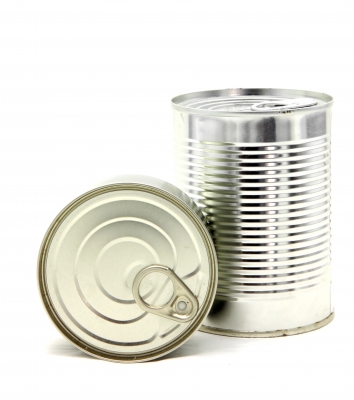written by Amy Morris DNN

The chemical Bisphenol A (otherwise known as BPA for short) can have devastating effects on your health. It is also found in many food containers and if these are found in your house, then your body may have dangerously high levels of BPA as a result.
Bisphenol A is a chemical used to harden plastic, and line food containers such as metal tins and drink cans, and it makes the product easier for the manufacturer to work with.
BPA has been declared as toxic in Canada in 2010, and many US states too. The UK and the whole of the US on the other hand still have not declared it as toxic. But this does not mean you should not still be avoiding it at all costs. This should simply make you question the sources, the validity of the testing processes in some parts of the US and UK, and the governments in these countries reasons for not declaring it as toxic yet.
The reason BPA needs a worldwide ban is because this man-made chemical has been linked to endocrine disfunction, lowering female egg quality, lowering sperm quality, disrupting menstrual cycles, interfering with metabolic activity, to even affecting your child’s concentration and contributing to heart disease and breast cancer. The latter being due to BPA mimicking the body’s natural oestrogen, and creating higher than normal levels of a man-made oestrogen other wise known as a zenoestrogen. Even too high levels of the bodies own natural oestrogen has been linked to causing cancer.
Where BPA is often found:
- Till receipts
- Tinned food (unless stated BPA free)
- Plastic baby bottles (unless stated BPA free)
- All poly-carbonate plastics contain BPA as a primary ingredient such as CD’s, drink bottles, Apple Mac computers, outdoor fixtures, and car headlights
- Surfboards (a large component of most surf boards is epoxy resin where BPA is one of the main components)
- Glass jar lids
- Medical equipment
- Sports equipment
- Drinks cans
- Water supply pipes
Heating food in containers that are made from BPA increases your chances of leeching this toxic chemical into your food and that of your family. A study was conducted by the Harvard School of Public Health and published at the end of 2011, and this test monitored the levels of BPA excreted in peoples urine in those that ate tinned soup for five days versus those that consumed home made soup for five days. They found that those that ate the 12 ounce serving of a can of soup over the five day period had a 1,000 percent increase in urinary BPA concentrations compared with those that ate the fresh home made soup.
Some companies have vowed to ditch this toxic chemical from their food containers and these include Nestle who are said to be removing BPA from their products over the next three years. Heinz are also among a group of large food companies confirming they are working on removing this ingredient due to health concerns.
What to do about the BPA issue
When buying food, be sure to pay attention to not just whether the product is organic or not, but be sure to pay attention to the type of packaging it is in. Be sure to give what you buy a good scrub too before eating and as soon as you get home to reduce the risk of contaminating others they come into contact with.
The best options are to buy your produce all free from packaging, and to store them in organic fabric unbleached cotton bags that have been slightly damped. This will mean they last longer than with no covering in the fridge and out as I have found.
To make your own food from scratch rather than buying tinned food. It is really not as hard as you may think! Be sure to check my recipes section for help here and for easy ones you can make in a flash.
If you must buy food in plastic or tins from the supermarket be sure to check the labels that they state they are BPA free before buying them though just to be sure. Do not heat food in plastic containers in the oven or in the microwave as this will eventually wear down the plastic and leech the chemicals it is made from into your food. If you have any doubts about any products you buy you can always phone or email a food manufacturer directly and get them to prove their specific item does not contain BPA through showing you adequate test reports that were done by reputable external auditors. If they have removed it I believe a company will be only too proud to show this to their consumers!
About the Author:
Amy Morris is the owner of Great Health Naturally, is a qualified and UK registered Natural Nutritionist and holistic lifestyle adviser. Amy is based in beautiful green Surrey, UK. She enjoys consulting and helping her clients (and anyone who will listen!) become informed, educated and empowered so that they can take control of their health and achieve great health naturally.
Sources for this article:
Dr. Mercola http://articles.mercola.com/sites/articles/archive/2011/01/03/could-this-be-why-many-women-are-infertile.aspx
UPI http://www.upi.com/Health_News/2011/10/27/Study-BPA-may-affect-child-behavior/UPI-94721319693098/
UPI http://www.upi.com/Top_News/US/2011/11/23/High-BPA-levels-linked-to-canned-soup/UPI-26961322067158/
Independent Newspaper UK http://www.independent.co.uk/life-style/health-and-families/health-news/major-producers-to-ditch-bpa-from-packaging-2121837.html
Image by vichie81‘s portfolio is:
http://www.freedigitalphotos.net/images/view_photog.php?photogid=2023